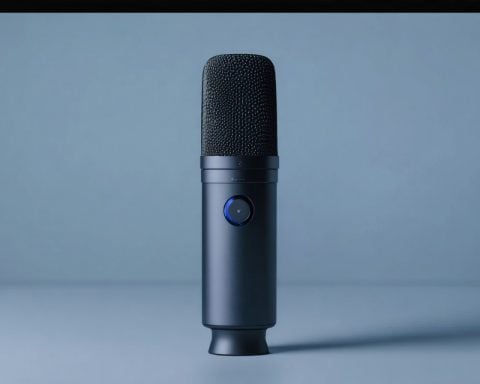- BMW targets mass production of advanced sixth-generation EV batteries in China by 2026, focusing on cylindrical cells and 800V technology.
- Innovations promise an extra 300 km range with just a 10-minute charge, 20% increased energy density, and 30% faster charging speeds.
- Partnerships with CATL and EVE Energy drive significant advancements in battery performance and efficiency.
- BMW Brilliance Automotive Ltd. leads in sustainability with China’s first joint-venture EV battery center featuring a closed-loop recycling system.
- BMW has invested over 14 billion yuan in battery production and R&D in China since 2017, with Shenyang serving as the largest production base.
- The initiative signifies BMW’s commitment to an electric, sustainable future, reshaping the electric vehicle industry landscape.
As the global race towards electrification intensifies, BMW has put its foot firmly on the accelerator. By 2026, the iconic German automaker plans to rev up the mass production of revolutionary sixth-generation electric vehicle batteries in China. These batteries, featuring substantial cylindrical cells and cutting-edge 800V technology, promise to transform the EV landscape with staggering capabilities.
In the heart of Shenyang, Liaoning Province, BMW’s innovation center flickers with activity. Here, collaboration with Chinese giants CATL and EVE Energy has laid the groundwork for a quantum leap in battery performance. These new batteries are set to propel a vehicle an additional 300 kilometers with just a 10-minute charge—an unprecedented leap in convenience and efficiency. The enhancements don’t stop there. Expect a 20 percent jump in energy density, a 30 percent faster charging speed, and an equivalent increase in total driving range.
Pioneering sustainable practices, BMW Brilliance Automotive Ltd., the company’s joint venture in China, stands out as a trailblazer. It has birthed China’s first joint-venture EV battery center, boasting a closed-loop recycling system aimed at nurturing the environment.
The numbers tell a story of commitment; since 2017, BMW’s investment in battery production and R&D has surged past 14 billion yuan (US$1.95 billion) in China alone. The Shenyang production base, the largest in BMW’s global portfolio, embodies a 105 billion yuan testament to BMW’s vision of an electric, sustainable future.
As BMW charges ahead, it redefines the road ahead for the electric vehicle industry, heralding an era where speed and range play harmoniously with sustainability, ensuring an exhilarating ride into an electrified tomorrow.
BMW’s Electrifying Leap: How Their New EV Batteries Could Transform Your Drive
How-To Steps & Life Hacks: Maximizing Your Electric Car’s Battery Life
1. Optimize Charging Habits: Regularly charging your EV battery between 20% and 80% can significantly extend its lifespan. Avoid frequent full charges unless necessary for long trips.
2. Maintain Moderate Temperatures: Extreme temperatures can degrade EV batteries. Keep your vehicle parked in shaded or temperature-controlled environments whenever possible.
3. Utilize Eco-Mode Features: Use your EV’s eco-mode setting to optimize power usage and extend battery life.
Real-World Use Cases: Impact of BMW’s Battery Technology
BMW’s new battery technology can advance the following:
– Rapid Charging Stations: Commercial setups can offer 10-minute charges for extended range, enhancing convenience for EV drivers.
– Long-Distance Travel: With an increased driving range, these batteries make long road trips more feasible without frequent stops.
– Luxury Electric Models: Enhanced energy density and faster charging suit premium electric models, providing better performance.
Market Forecasts & Industry Trends
The global EV market is expected to surpass $800 billion by 2027, with a substantial portion driven by advancements in battery technologies. BMW’s innovations could play a pivotal role in this expansion, specifically in regions with growing demand for high-performance luxury EVs.
Reviews & Comparisons
– BMW vs. Tesla: While Tesla’s Supercharger network is a strong competitor, BMW’s batteries promise an additional 300 km range in just 10 minutes, which could be a game-changer.
– BMW vs. Mercedes-Benz: Both are leading pioneers in luxury EVs, but BMW’s partnership with CATL could offer an edge in battery technology innovations.
Controversies & Limitations
Sustainability Concerns:
There are concerns over battery material sourcing and its environmental impact. BMW’s closed-loop recycling system is a promising attempt to address this issue, ensuring minimal footprint and better resource management.
Features, Specs & Pricing
– Cylindrical Cells: These offer improved power density and cooling performance.
– 800V Technology: Enhances charging speeds and overall efficiency.
– Pricing: Anticipated to be competitive with existing premium electric models, though specifics are yet to be confirmed.
Security & Sustainability
BMW is adopting robust cybersecurity measures to safeguard against potential vulnerabilities in EV software integrations. Moreover, the closed-loop battery recycling aims for a zero-waste production cycle in BMW’s Chinese facilities.
Insights & Predictions
Future Evolution:
Experts suggest that BMW’s advancements could prompt similar technological leaps in competitive automotive brands, accelerating the transition toward sustainable transportation.
Tutorials & Compatibility
BMW provides interactive tutorials for users to understand the best practices for battery care and efficient energy management. Compatibility with existing charging infrastructure is being prioritized to ensure a seamless transition for users.
Pros & Cons Overview
Pros:
– Substantial range increase with minimal charge time
– Sustainable production practices
– Collaboration with leading battery manufacturers
Cons:
– Infrastructure for rapid charging may lag initial launch
– Initial costs may be higher due to new technology implementation
Actionable Recommendations
– For potential EV buyers, consider waiting for the release of these advanced batteries if you prioritize cutting-edge technology and sustainability.
– Current BMW owners should inquire about possible upgrades or trade-in options to take advantage of new advancements.
For more information on BMW’s innovations, visit the BMW website.
With these insights, auto enthusiasts can prepare for a dynamic shift in how electric vehicles shape our driving habits, priorities, and environmental impacts.














